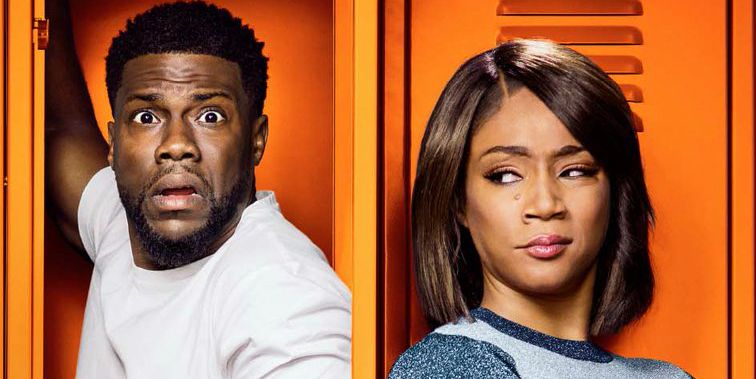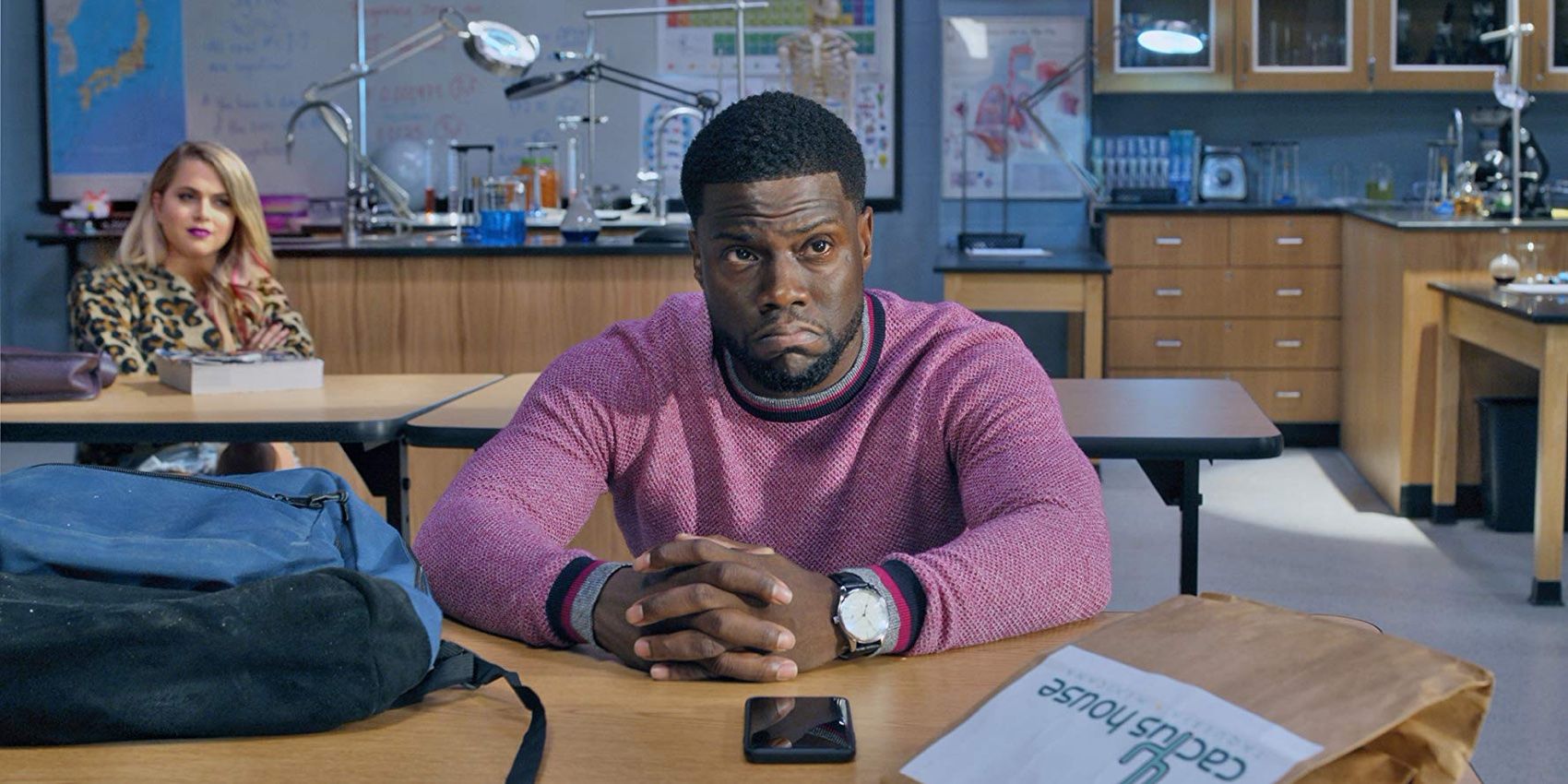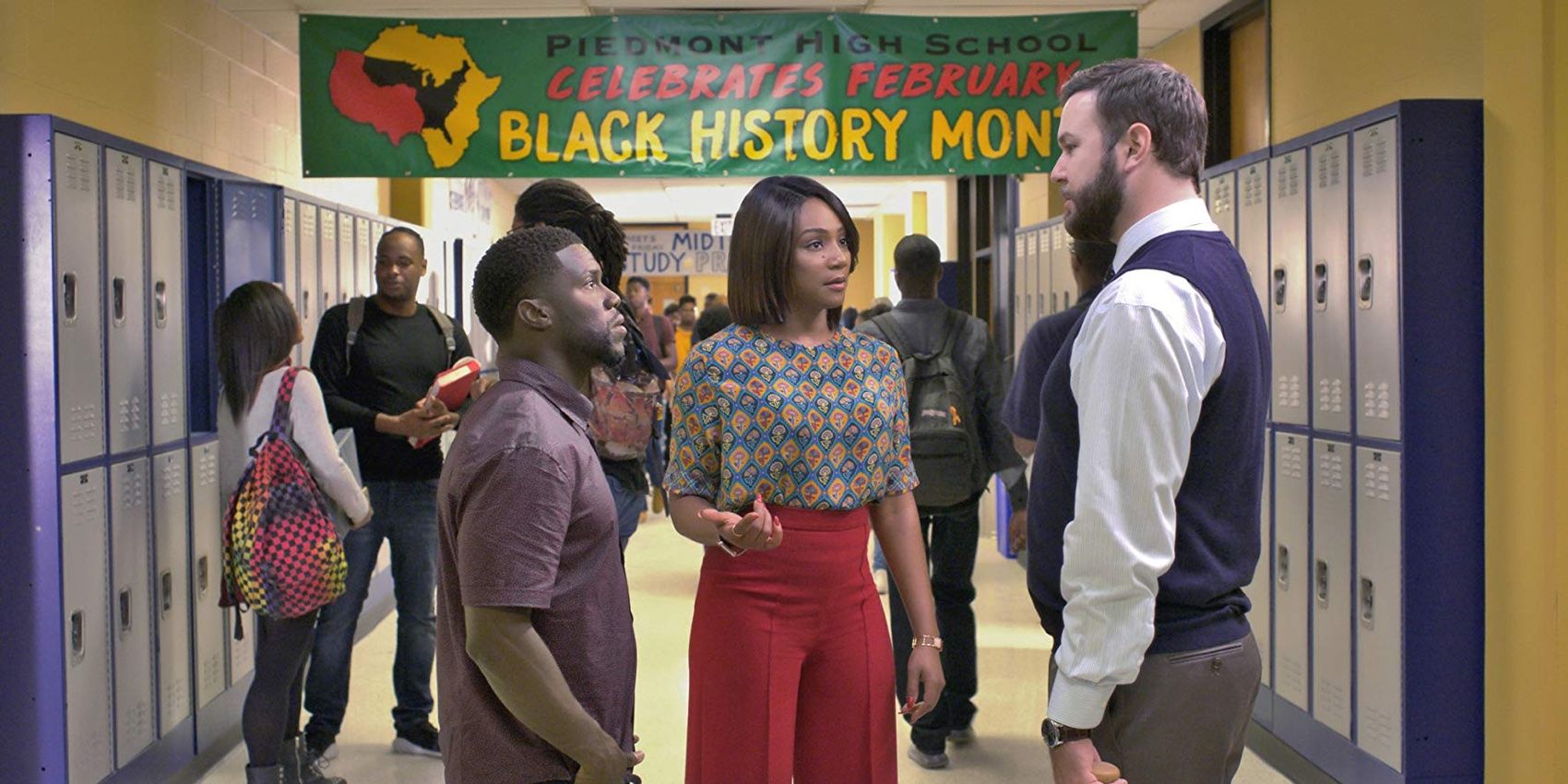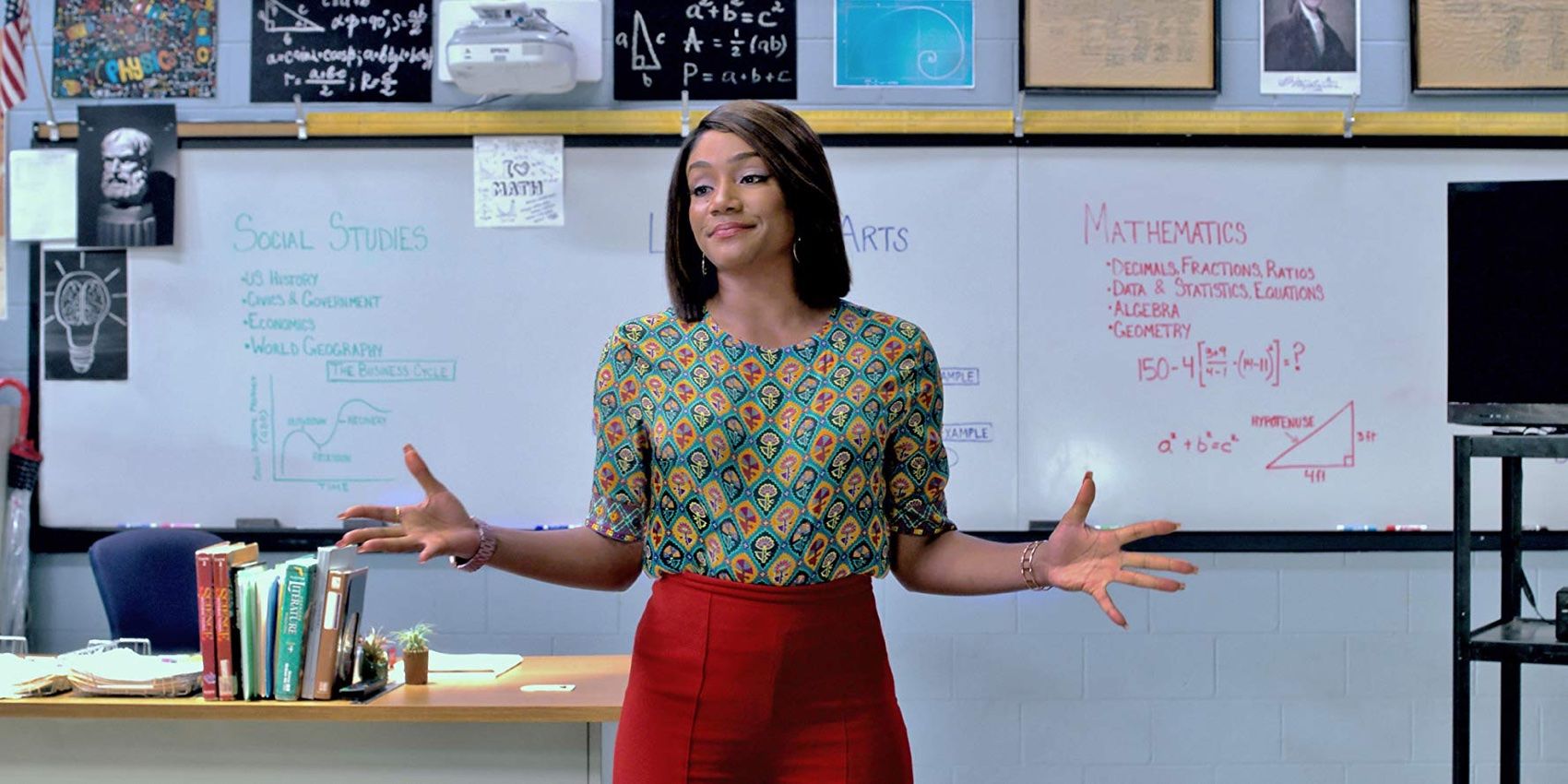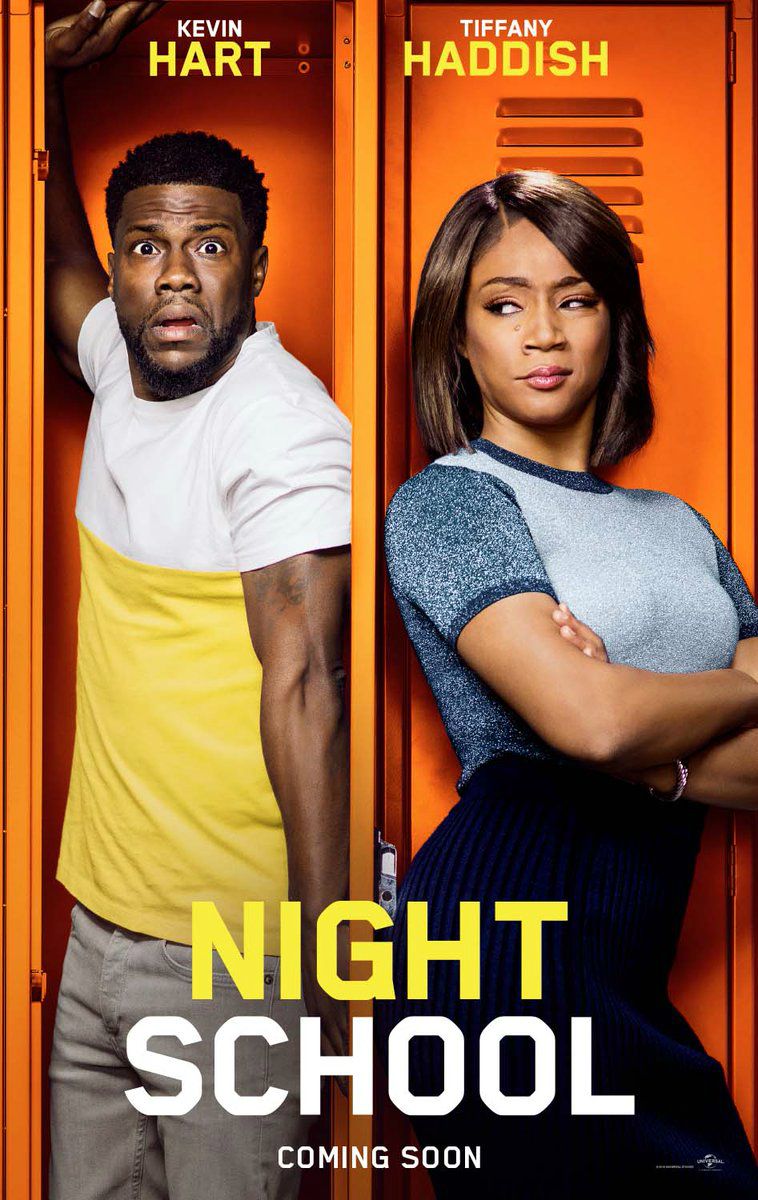Night School is a by-the-numbers and forgettable studio comedy that fails to realize the full potential of its promising cast and premise
After helming last year's surprise comedy hit Girls Trip, director Malcolm D. Lee and breakout star Tiffany Haddish decided to reunite for a new movie: Night School. This time around, the two brought Kevin Hart (himself riding a prolonged hot streak) along for the ride, pairing Haddish's no-nonsense teacher with Hart's troublemaking student. Especially after Girls Trip became a massive critical and commercial success, there was hope Lee and Haddish would be able to strike twice and craft another hilarious outing. Unfortunately, that isn't the case. Night School is a by-the-numbers and forgettable studio comedy that fails to realize the full potential of its promising cast and premise.
High school dropout Teddy Walker (Hart) gets by in life lying and selling others a fictionalized version of himself that's far better off than he really is. Somehow, Teddy has conned his way into settling down with a fiancé who's well out of his league - Lisa (Megalyn Echikunwoke). Needing a job so he can keep up the facade, Teddy quickly finds out his employment options are limited unless he goes back to school and gets his GED.
Running out of options, Teddy has no choice but to sign up for night school classes run by Carrie (Haddish), a tough teacher who pushes her students. Over the course of the semester, Teddy and his fellow classmates attempt to prepare for the GED exam, with Teddy eager to find any shortcut available to get what he wants. But things aren't that easy in Carrie's class, and Teddy soon discovers he needs to confront harsh truths about himself in order to get far in life.
Night School has six credited writers (including Hart), and the end result definitely is a case of too many cooks in the kitchen. The film's main narrative comes across as a hodgepodge of ideas strung together in a manner that lacks natural flow and story progression. In many ways, it prefers the episodic route, cramming subplots that might have been strong enough to carry the movie on their own (like the students banding together to steal the test) into a single set piece that would be fitting for a sketch show. As a result, none of these concepts are fully developed, and Night School struggles to maintain any forward momentum. The screenplay's poor structure negatively impacts the pacing, and at just under two hours, a case can be made Night School is too long for its own good and could have benefitted from another editing pass.
The story's shortcomings may have been forgivable if the ensemble was an entertaining bunch, but Night School fails there too. Each of Teddy's classmates get one personality trait that's amplified for comedic effect and very little development outside of that. To be fair, there are some individual standouts within the group (Mary Lynn Rajskub as a stressed and repressed mother, Romany Malco as a man paranoid of technology), but the night school class lacks overall chemistry and never feels like a cohesive team. Perhaps the most memorable supporting player is Taran Killam as Stewart, Teddy's old high school foe who's now the (very) stern principal constantly reminding others of his authority. The character is a bit of a cliché, but Killam is still responsible for some laughs and relishes in hamming it up for the camera.
As for the film's stars, Hart and Haddish are both in their element here, but neither delivers a great comedic performance. The former is basically playing himself as a fast-talking, high-strung scam artist who tries to get by on his charisma. Haddish makes for a convincing enough straight-woman to Teddy's antics, though she's definitely been better too. Unfortunately, the two don't create the fireworks Lee likely envisioned when he paired Hart and Haddish, and their scenes together meander along, rather than crack the audience up in laughter. Their chemistry isn't so bad that it renders Night School unwatchable (both have their moments in the various exchanges), but this nevertheless feels like a missed opportunity.
At a time when studio comedies are making strides to becoming more cinematic viewing experiences (see: Game Night and Tag), the filmmaking approach of Night School is sadly a step back. With regards to the cinematography, Lee and his DP Greg Gardiner employ extremely flat visuals that are akin more to TV presentation than a movie (which only exacerbates the "sketch show" feel), and any added flourishes are minor by comparison. It all feels quite standard and doesn't have a unique style behind it, making the film boring to look at.
In the end, Night School is a rather disappointing comedy that over-extends itself (both in terms of the overall runtime and single scenes) and isn't as funny as it wants to be. It's primarily hamstrung by a bloated script, and perhaps with tighter, more focused writing, the film would have turned out better. As it stands, Night School is difficult to recommend to viewers who aren't already either fans of the genre or the principal players involved. For those who are on the fence, it's not worth a trip to the theater.
Trailer
Night School is now playing in U.S. theaters. It runs 111 minutes and is rated PG-13 for crude and sexual content throughout, language, some drug references, and violence.
Let us know what you thought of the film in the comments!

